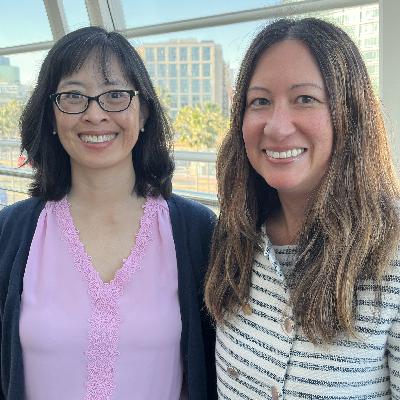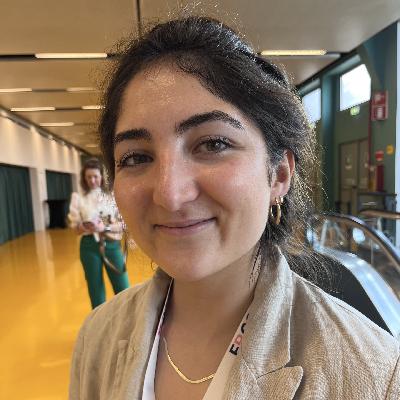Érica A. Oliveira PhD: How to Overcome Drug Resistance: Patient Derived Organoids Study Finds Epigenetic Pathways in Colorectal Cancer
Description
Érica A. Oliveira PhD: How to Overcome Drug Resistance: Patient Derived Organoids Study Finds Epigenetic Pathways in Colorectal Cancer
Interviews with:
Érica A. Oliveira PhD, Senior Scientific Officer, Genomics and Evolutionary Dynamics, Institute of Cancer Research, Sutton, London UK
And:
Christopher Sng MD, Clinical Research Fellow, Institute of Cancer Research and Royal Marsden Hospital, London
LONDON, UK—New insights into understanding and overcoming cancer drug resistance have been announced by researchers from the Institute of Cancer Research and the Royal Marsden Hospital in London.
Érica Oliviera PhD, Senior Scientific Officer for Genomics and Evolutionary Dynamics, and Christopher Sng MD, Clinical Research Fellow, both at the Institute of Cancer Research and Royal Marsden Hospital in London, tell the Audio Journal of Oncology’s Peter Goodwin about their research on colorectal cancer using so-called “organoids” which perform like miniature replicas of human organs.
The research shows how epigenetic factors control drug resistance by influencing DNA expression. The findings set the scene for combatting resistance by using, agents, protocols and combinations designed to modify these epigenetic pathways.
The research is published in Cancer Research Volume 85 Issue 15, 1st August 2025:
“Epigenetic Heritability of Cell Plasticity Drives Cancer Drug Resistance through a One-to-Many Genotype-to-Phenotype Paradigm”
[Cancer Res (2025) 85 (15): 2921–2938]
https://www.audiomedica.com/wp-content/2025/08/Erica-Oliveira-PRODUCTION-MASTER.mp3
Erica Oliveira PhD
ABSTRACT
Cancer drug resistance is multifactorial, driven by heritable (epi)genetic changes but also by phenotypic plasticity. In this study, we dissected the drivers of resistance by perturbing organoids derived from patients with colorectal cancer longitudinally with drugs in sequence. Combined longitudinal lineage tracking, single-cell multiomics analysis, evolutionary modeling, and machine learning revealed that different targeted drugs select for distinct subclones, supporting rationally designed drug sequences. The cellular memory of drug resistance was encoded as a heritable epigenetic configuration from which multiple transcriptional programs could run, supporting a one-to-many (epi)genotype-to-phenotype map that explains how clonal expansions and plasticity manifest together. This epigenetic landscape may ensure drug-resistant subclones can exhibit distinct phenotypes in changing environments while still preserving the cellular memory encoding for their selective advantage. Chemotherapy resistance was instead entirely driven by transient phenotypic plasticity rather than stable clonal selection. Inducing further chromosomal instability before drug application changed clonal evolution but not convergent transcriptional programs. Collectively, these data show how genetic and epigenetic alterations are selected to engender a “permissive epigenome” that enables phenotypic plasticity.
Significance:
Drug resistance is driven by genetic–epigenetic memory that enables cancer cells to adopt multiple phenotypic states depending on environmental conditions, supporting integration of evolutionary principles into biomarker discovery and personalized treatment strategies.
























